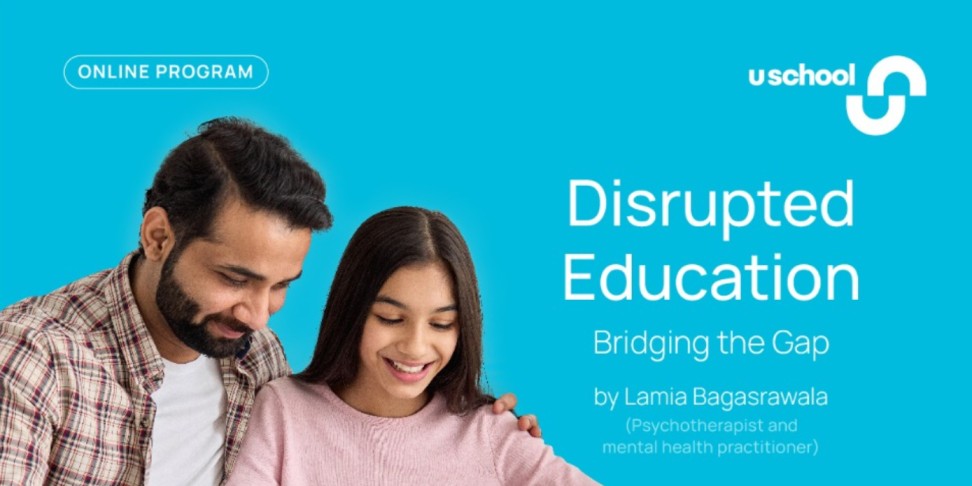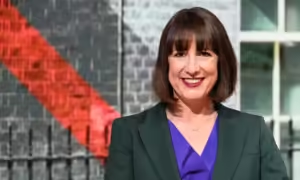An Introduction to Disrupted Education – Bridging the Gap by USchool

Sitting at her desk for online school, Reena of class VIII B struggles to stay focused on what the teacher is saying over the screen that presents an occasional diagram or text relevant to the lesson. She is one of the millions of children whose future is on the line because of pandemic-disrupted education. It’s not only the pandemic, but also festivals, elections, floods, smog, and hartals that have become a part of the fabric of everyday life. These disrupt the regularity and system of education that Leena relies on. She also relies on her parents and teachers to clear up the chaotic environment.
To this end, we at USchool have designed our most recent course, Disrupted Education – Bridging the Gap (DEB), that lends you a unique lens through which to view post-pandemic education. DEB also concentrates on how to tackle the physical, mental and emotional fallouts of pandemic-scarred education. Our course facilitator, Lamia Bagasrawala, is a psychotherapist, education facilitator and researcher. She is a published author on mental health in adolescents, schools, and communities, Lamia brings to the table a wide range of wisdom and experience from reputed institutes like Jai Hind College, TATA Institute of Social Studies, the Azim Premji Foundation, TARSHIs, Menstrupedia and The Swaddle. Our guide for DEB, Lamia discusses various topics to equip people to handle the fallouts of disrupted education successfully. The fallouts have been not only for the students but also for parents, educators and school counsellors; all of whom are stakeholders in the school system. DEB enables all stakeholders by acquainting them with the how’s, what’s and why’s of education in its present state of flux.
Amid these confounding times, children cannot be expected to tide over it all with no handholding. It is also essential that parents and educators are aware of how to provide different kinds of handholding for each age group. DEB steps up to the task by providing information regarding the needs of each age group of students and how to provide them. Instead of buckling under the truly immense pressure, physical, mental and emotional, the stakeholders must view upsets as merely physical, mental and emotional hurdles that need to be crossed. It’s all a matter of broadening perspectives and strengthening ties.
Perspectives matter! And changes in perspectives must come about knowledgeably and intentionally. For this reason, DEB tackles, among other topics, the following:
- tackling online exams
- adjusting to offline school
- anxiety in children
- dealing with death and loss.
Statistics show that along with the troubling classroom scenario, finances and health have resulted in a rising number of children facing depression, mood-related and mental health problems. Of these, mental health takes precedence simply because of the astounding number of cases that psychologists are having to treat since the onset of the pandemic.
Mental health is a concern not only for children but also for adults who are their parents, caregivers, teachers, mentors and role models. DEB provides familiarizes the gown-ups on various matters including the following:
- Alert and aware parenting
- Self-care of parents: physical. Emotional and mental
- Listening to listen
- Parenting as collaboration
DEB, like USchool’s other courses, is self-paced to make personal development both enriching and fulfilling. USchool is a young and vibrant organization, led by seasoned intellectuals and a passionate workforce.
USchool is a doorway that allows access to all manner of learning for self-improvement for people from India and the world. We are in the business of helping people change for a better and brighter future.
Hannah Sanala Mathew,
Head of Curriculum Development,
USchool









